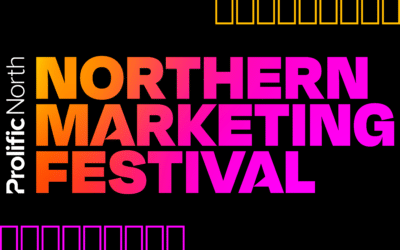
Through our primary research with agencies around the world we know that winning new business is a tough game and that under the pressure of increased competition and shrinking budgets some agencies are defaulting to outdated methods, but how do the recipients of these approaches feel about the situation?
To find out exactly what clients were thinking we teamed up with The Marketing Academy and interviewed high profile clients from companies including Aviva, Mondelez International, Freesat, Kimberley Clark and Phones 4 U.
“I get bombarded so often that I no longer pick up my desk phone.”
“It may have worked in the past, but the more agencies bombard us, the less it will work in future.”
“I hate cold calling and direct mail.”
“I tend to ignore agency approaches now.”
“I wonder what I have missed out on as a result of just saying no…but I don’t have the time to sift through them all.”
Not exactly encouraging, but despite these sentiments, we did glean a lot of positives about the way our industry could be going about the process of winning new business. There are opportunities for those agencies who are willing to commit to rising above the noise by doing for themselves all of the things that they do so well for their clients.
Five of the most prominent findings:
1. You can run but you can’t hide
Decision-makers feel like they’re under bombardment. Some marketers are receiving upwards of 15 calls and emails per day from agencies. Unsurprisingly, being approached so frequently becomes detrimental to their working day and some interviewees reported no longer answering their phones and deleting emails from senders they didn’t recognise without even opening them.
Jennifer Elworthy, Head of Marketing at Freesat says:
“I get approached constantly. It’s even got to the stage now where I answer my phone and I am concerned – will this be another cold call?”
It’s not just calls and emails; LinkedIn – once cherished for its professional networking space – has become a rich hunting ground for agencies trying to get a foot in the door. Some of our high profile interviewees were particularly miffed that the sheer number of approaches had forced them to consider locking down their LinkedIn accounts. The experience of Neil Costello, Head of UK Research at Aviva, is typical:
“I have certainly noticed, I would say over the last year or so in particular, a genuine bombardment of products and services from agencies through social channels, predominantly LinkedIn, to the extent that I do switch off from it now…. I will lock it down to stop being contacted if the situation gets worse, and it’s a shame as I will lose the power of the social network.”
The upshot of this unrelenting assault on decision-makers is that they will end up (and already are) missing out on the genuinely well-researched approaches and the emerging talent that we should be allowing to shine and represent our industry.
2. It’s all me, me, me
If you’re an agency whose approach is to talk about who you are and what brilliant things you’ve done then you need to stop talking and start listening. It’s a common frustration of many marketing decision-makers when agencies spend more time talking about themselves rather than the challenges of the people they’re trying to impress.
Jon Evans, Marketing Director at Purity Soft Drinks:
“Ask me what my challenges are and come back to me with how you can solve them. If you don’t understand my needs how can you tailor the benefits of your service to them? It’s marketing 101. The problem is most agencies don’t bother finding out; they are too focused on selling themselves.”
What clients are really interested in are agencies that can demonstrate an understanding of their business and their challenges. Failing to do this gives the impression that you aren’t serious about working with the people you approach. Decision makers on the receiving end feel like they’re just another name on a list.
Jennifer Elworthy, Head of Marketing at Freesat says:
“I don’t think I have ever received an approach that feels like it was relevant to me or demonstrated that they understood what I am looking for, or wanted to understand and help me – it just feels like they want to sell to me.”
3. Practice what you preach
Some agencies seem to forget all the advice that they give to their clients when it comes to marketing themselves. If your marketing techniques and practices are annoying the clients they’re supposed to impress, they probably aren’t going to trust you to do a good job. It’s like being expected to take style advice from someone dressed in a shell suit…
Trevor Cairns, former Director of Marketing at Phones 4U gets to the crux of the issue:
“The whole point of an agency is to tailor the right solution to the customer, so why do agencies use generic, poorly thought out stuff as part of their marketing activity? If an agency is scattergun – firing out random mailings, it makes me feel like they don’t have a very strategic approach to marketing. It’s hard to see why I would use an agency like that when what I want from an agency is for them to get under the skin of my business and provide a tailored solution to a business problem. If they don’t show me that upfront by at least doing a bit of research, what impression does that give?”
4. Developing an insight-led, strategic approach pays dividends
Most agencies aren’t meaningfully differentiated from one another and haven’t spent the time setting a vision for their business, developing an awareness of the marketplace they operate in or identifying clients that might be a good fit for them based on a clearly defined understanding of their own strengths. That’s a big opportunity for agencies that take a more strategic approach.
Jon White, Marketing Director at Kimberley Clark says:
“In my role as chair of the executive committee of ISBA I have seen inside a number of agencies and witnessed first hand the lack of strategy applied to the process of identifying and acquiring new clients. From my perspective the key is relevance; what can you specifically do for my brands and business, not what you’ve done for other people.”
The Global Category Director of a large drinks company urges agencies to develop a more thought-out approach to new business,
“Questions that I don’t think many agencies ask themselves are ‘What kind of business are we?’ and ‘Can we realistically hope to get on this client’s roster?’ If agencies better understood themselves they’d be better placed to decide on the businesses to target where they could and should be able to develop long-term partnerships.”
5. Face to face is still king
Despite all the digital forms of communication available now, marketing decision makers still find that face-to-face is the most effective way for agencies to initiate relationships with them.
Emad Nadim, Brand Manager for Kenco at Mondelez International says:
“Networking is a great way to meet new people, and for agencies to get on my radar, but they must realise that it’s a slow burn…It impresses me when people come up to me and authentically and genuinely say they want to talk to me, because they have done their research and know what we are doing as a brand, and I am more likely to hear them out. Try and ensure that you are not making an active sell; the idea is just to grab someone’s attention so that they’ll remember you afterwards.”
So what’s next for new business approaches?
In today’s world of B2C marketing, brands are doing everything they can to stop selling, start listening and engage with their customers and it is agencies that are helping them achieve this. The leading companies and brands that agencies aspire to work with have realised that the world has changed, and in order to stay relevant, have adapted and continue to adapt the way they build relationships with their target customers.
If agencies continue to try and communicate their innovation, creativity and strategic capabilities to potential clients through archaic business development methodologies rooted in the Mad Men era, they run the risk of turning off the very people that they are trying so hard to impress.
With over 17,000 agencies in the UK alone all vying for work, there is a definite competitive advantage to be had by those willing to face up to a new world in not just the way they market their clients’ brands, but in the way they build and market their own.












